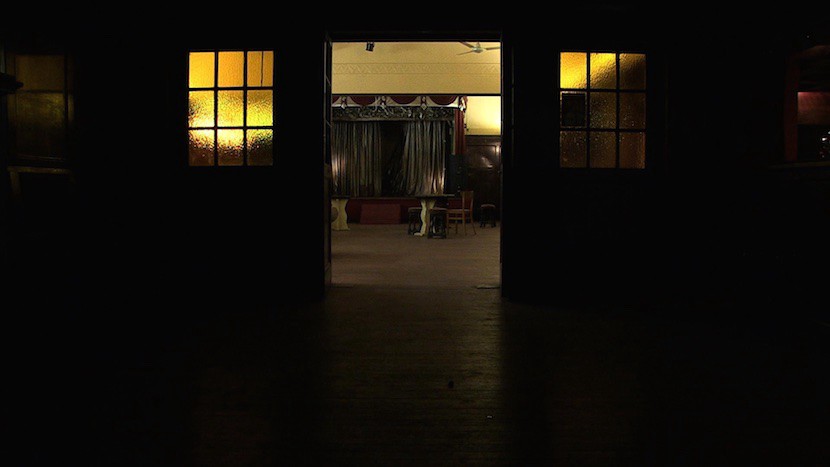Sarah Turner is an artist, filmmaker, writer, curator and academic. Her feature films include “Ecology” (2007), “Perestroika” (2009) and “Perestroika: Reconstructed.” Turner’s short films include “Overheated Symphony,” orchestrated for the 2008 Birds Eye View Film Festival, and “Cut” (2000). Both “A Life in a Day with Helena Goldwater” (1996) and “Sheller Shares Her Secret” (1994) headlined Midnight Underground when they were also broadcast on Channel 4. Turner has had feature scripts commissioned by the BFI, Film Four Lab and Zephyr Films. Among other curatorial projects, Turner produced (with Jon Thomson) the launch program for Lux Cinema in 1997, “Hygiene and Hysteria: The body desired and the body debased,” a touring program of artists’ film and video for Arts Council England and programs for Tate and the National Film Theatre. (Press materials)
“Public House” will premiere at the 2015 BFI London Film Festival on October 12.
W&H: Please give us your description of the film playing.
ST: “Public House” fuses fact and fiction in a multi-layered exploration of memory, community and social reinvention. Activated in response to the community takeover of the Ivy House pub in London, this feature-length work is a shape-shifting genre hybrid that moves from observational document to minimalist opera — by this, I mean a spoken word/text/musical. Interweaving testament, performance poetry and an innovative soundscape that fuses acousmatic composition and verbatim librettos, the film explores individual and cultural memory and its resonance in shaping social spaces.
W&H: What drew you to this story?
ST: I live opposite the pub and was actively involved in the campaign to save it. My interest as participant/agent, artist/researcher and neighbor/friend is in how the Ivy House story stages social interdependencies and is both the agent of, and a powerful metaphor for, narrative reinvention.
What it means to be local, ideas of insider/outsider, community and participation, home and belonging are the crucial anxieties of our age, crystalized in our relationship to place and space.
“Public House” explores the social function of pubs with the Ivy House story at the center of it. Pubs are spaces that allow us to connect with others who are often quite different from us. The encounter with a stranger is at the heart of pub culture, and also — possibly — why we value it. What other spaces allow us to explore our fictions, both the events of our lives and the complex human emotions which are staples of pub culture — lust, fear, desire and mourning — socially, in a public, as opposed to a private, house?
W&H: What was the biggest challenge in making the film?
ST: I normally start by writing — having a script or a series of monologues, anything that provides a framework or template to work from or drift towards. Here there was nothing other than a proposal of a process. And that process was totally responsive to unpredictability: the whims, desires, fantasies and imaginative generosities of a community, and events that happened within a given time frame (and a few ambitious formal parameters).
W&H: What do you want people to think about when they are leaving the theater?
ST: The transformative power of the communal imagination and the possibilities for social change.
W&H: What advice do you have for other female directors?
ST: Remember the alchemy of adversity; despair is necessary to euphoria!
W&H: How did you get your film funded? Share some insights into how you got the film made.
ST: The film is funded by arts funding. I have a history of working with these funding bodies and I knew that they would give me the most flexibility by not questioning my approach. But this film was a challenge to make on such a limited budget.
W&H: Name your favorite woman-directed film and why.
ST: Anything directed by Chantal Akerman, Lucrecia Martel, and the bulk of Claire Denis’s work. They are all cinematic visionaries that have changed the language of film.







